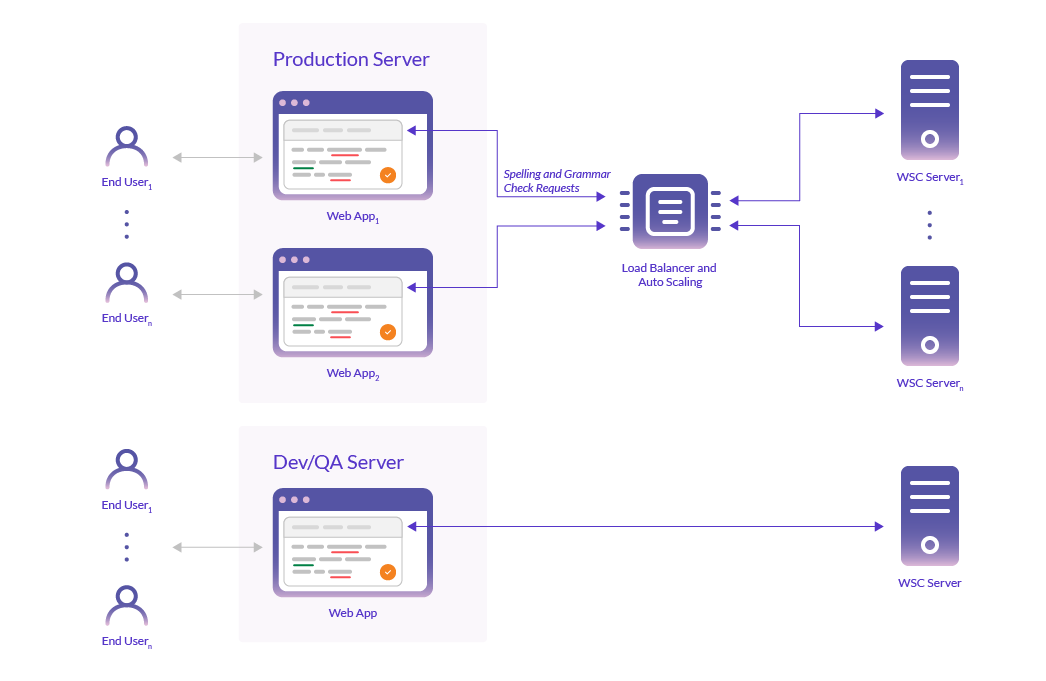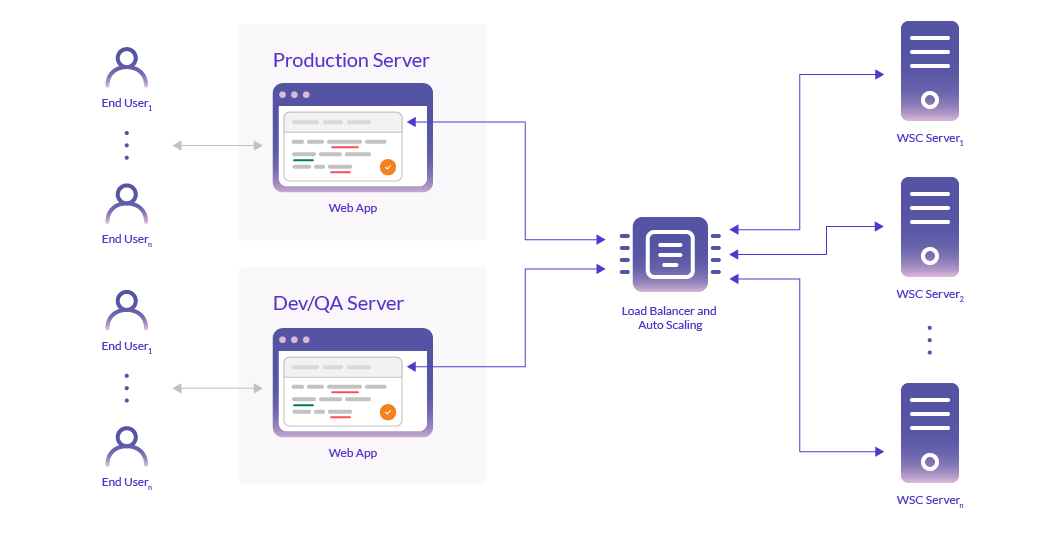Page History
...
- Using one installation of WebSpellChecker Server connected to one or multiple web apps (one to many relationships);
- Using several installations of WebSpellChecker Servers connected to several web applications (many to many relationships);
- Using multiple copies of WebSpellChecker Servers which are scaled depending on the load connected to multiple web apps;
- Having WebSpellChecker Server and your web app installed on the same server.
Scenario A. One WebSpellChecker Server and multiple client servers
In this simplest scenario type, which we recommend to use right from the start, you have the following deployment components:
...
All of them are connected to a single centralized WSC Server which processes the service requests from them.
Scenario advantages
You minimize your expenses on licensing WebSpellChecker though you have quite stable and isolated production environment enabling uninterrupted workflow of both your production environment and WebSpellChecker Server.
On the other hand, with such a deployment type you should consider the WSC Server workload issues since all web apps are set up to use only one WSC Server. Thus, the number of service requests (such as spelling and grammar check) sent should be supervised/managed and set up properly.
Scenario B. Multiple WebSpellChecker Servers and multiple client environments
In this scenario you have the following deployment components:
...
Here, Load Balancer enables even allocation of service requests for grammar and spelling check.Thus, the environments don’t fully rely on one centralized server to fulfill the needs of all connected web apps.
Scenario advantages
Compared with Scenario A, if some issues take place in the Production environment, the whole structure easily adjusts and starts using a different available WSC Server. Moreover, with a Load Balancer, the WSC Server workload is leveraged, and the Server keeps processing the requests from your Production and/or Dev/QA Servers. The whole system can be scaled to serve distributed environments where each environment can have its own dedicated WSC Server.
Scenario C. Scaled WebSpellChecker Servers and multiple client environments
In this scenario you have the following deployment components:
...
Such an environment can be scaled to serve distributed environments where Production and Dev/QA environments can have their own dedicated WSC Server.
Scenario D. WebSpellChecker Server and client application installed on the same server
In this scenario, WebSpellChecker is installed on the same server as your web apps, and all service requests and their processing take place on the same server. Such deployment scheme does not imply any Load Balancers or distributed server environment.
...

